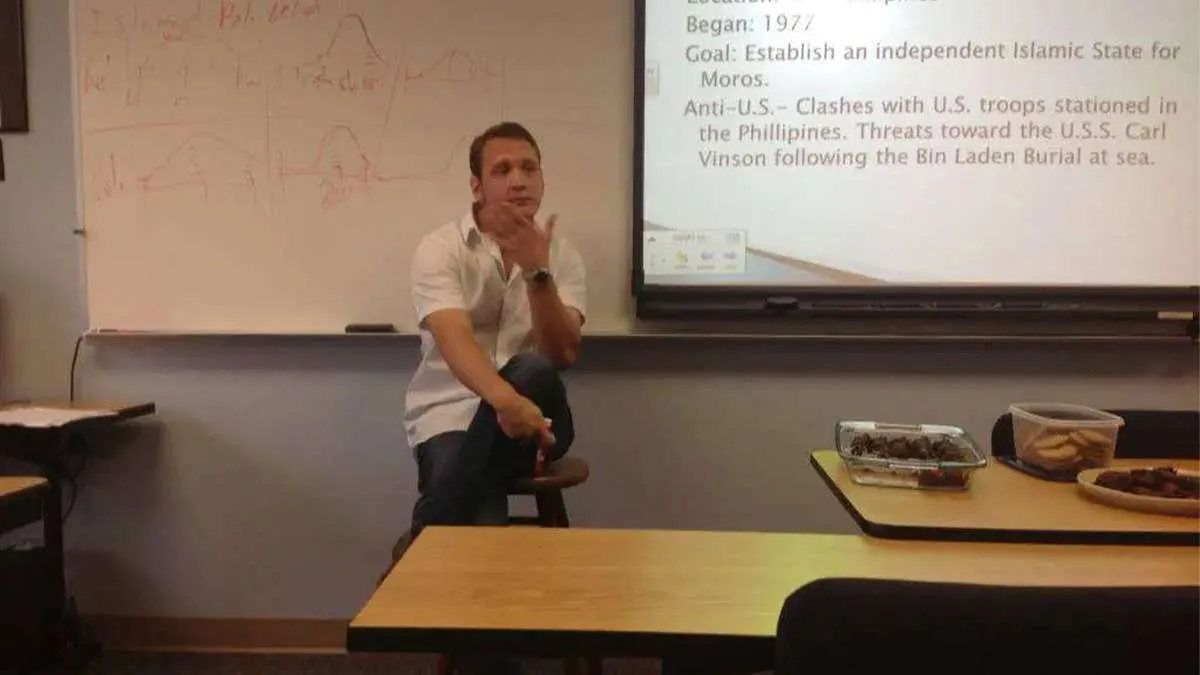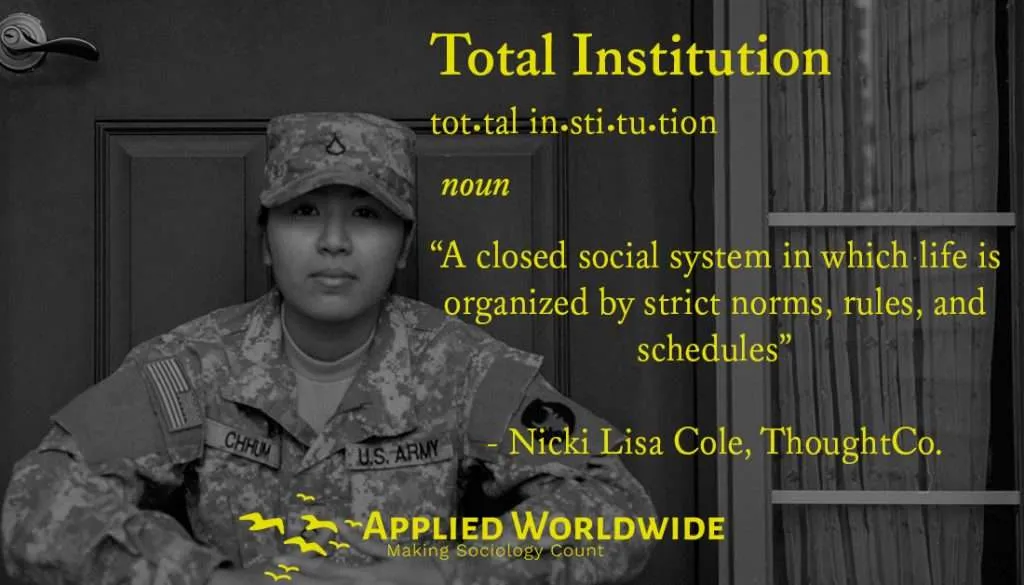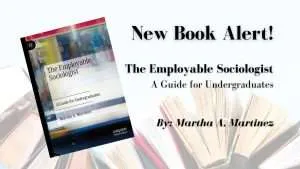Using your Experiences to Teach Research Methods in Sociology
This interview the instructor assignment is a class activity I designed to reinforce qualitative interview skills, the sociological imagination, and content related to total institutions. I use this as a practical way to teach research methods.
In this assignment, I give students a “research question” and give them the opportunity to interview me about my experience in the military as a case study.
Philosophy of Interview the Instructor Activity
By the time instructors begin to teach college sociology courses we all have unique experiences. Furthermore, the experience of becoming an instructor or professor, in itself, is likely unique to the majority of our undergraduate students. Nevertheless, in this assignment I propose a way that we can utilize these experiences to reinforce sociological lessons in a collaborative, goal-oriented, and meaningful manner.
Preparation for the Assignment
For me, the experience that I choose to draw upon is my experience in the military. I connect this experience to a lesson about total institutions. For others who do not have military experience, this assignment can work all the same with some simple modifications to my design.
Furthermore, I have conducted this assignment in two ways. I have implemented a long version where I give students lecture and reading materials in advance and we spend an entire class period on the interview. Additionally, I have tried an abbreviated version where I give a short lesson and we conduct the interview all within a single class period. Again, this assignment can be modified in a variety of ways.
Reading Materials for Interview the Instructor Activity
I prefer to use OpenStax free online textbooks in my courses from which I ask students to read about total institutions. We have also covered some material related to qualitative research methods by this point in the semester. Additionally, I like to give a topical reading to give students more information to use in the interview.
In this example, it is Robert J. Lifton’s eight criteria of thought control. I find whatever blog best describes the criteria—many exist. I like to give a brief lecture on the same day as the interview, just to make sure that we are all on the same page. In this lecture I provide students with the following information:
- Keys to Qualitative Interviews
- Types of Total Institutions
- Robert J. Lifton’s Eight Criteria of Thought Control
Keys to Qualitative Interviews
I introduce students to some basic principles of qualitative interviewing. Also, I let students know that I am willing to share my military experiences with them. That is, as long as they are able to use interview techniques to “get the information.” Here are some examples of “keys to Qualitative Interviews” which I have used in this assignment:
- Start the interview slow with “warm-up” questions,
- Allow the participant to tell their story by asking open-ended questions,
- Probe or wait for elaboration,
- Be conversational by using empathy, warmth, or humor,
- Document responses, and
- End with cool-down questions.
This list may not be extensive, but it allows students to understand that their goal is to extract my valuable story. And, they must do it in a way that is non-obtrusive to me, as the participant.
Types of Total Institutions
This is the “theoretical” lesson that I attach to this assignment. The theory is that some institutions exist that control a majority of the aspects of daily life of their members. While total institutions are similar in their control mechanisms, these principles are applied to different domains. For example, this is why military basic training looks a lot like jail. Both are total institutions, yet they serve different purposes.
Robert J. Lifton’s Eight Criteria of Thought Reform
The criteria of thought reform end up being somewhat like the “literature review” for the case study. The OpenStax textbook has a good discussion about resocialization. And, Lifton’s criteria are a good model for understanding how socialization might work in total institutions at the individual level. I want students to ask me about my experience and have a theoretical platform for understanding how that experience might translate beyond my specific case, making Lifton’s criteria useful. Often, we end up talking about military bases as “milieu control” or military acronyms as “loading the language,” for example.
Interview the Instructor
For the actual interview, I set students up with specific instructions. For example, “You are going to conduct a qualitative interview of me as a veteran of the military in a case study to answer the question,
“How do Lifton’s criteria apply to experiences in the U.S. military, and how does that application help us understand the military as a total institution?”
At this point, I would allow students to collaborate with one another in small groups or partnerships and strategize a quick interview plan, and whenever students are ready, they can begin asking questions. Finally, the idea is for them to prepare some sort of deliverable by the end of class.
Deliverable for this Lesson on Teaching Research
The deliverable I ask for depends on my goals for the assignment. Perhaps this is a paragraph response to the research question. However, the important point is to give students a collaborative goal, so I usually ask for a single response per group of 3-6.
The deliverable could be a definitive answer to the original research question. Alternatively, the deliverable may also be a reflection on research methods. Regardless of the deliverable make sure you can assess the work for understanding.
Final Reflections on this Interview the Instructor Activity to Teach Research
All said and done, this assignment is as simple as giving students some readings, allowing them to interview you, and ask them to write a 1-paragraph response. I have written about this assignment in greater depth for a couple of reasons. First, this is a great assignment to really allow students to connect with you as a person, while you still control the narrative in an instructive manner.
Second, this assignment relates closely to the actual sociological process of research. We learn about sociology by reading books but we learn how to be sociologists by practicing.








